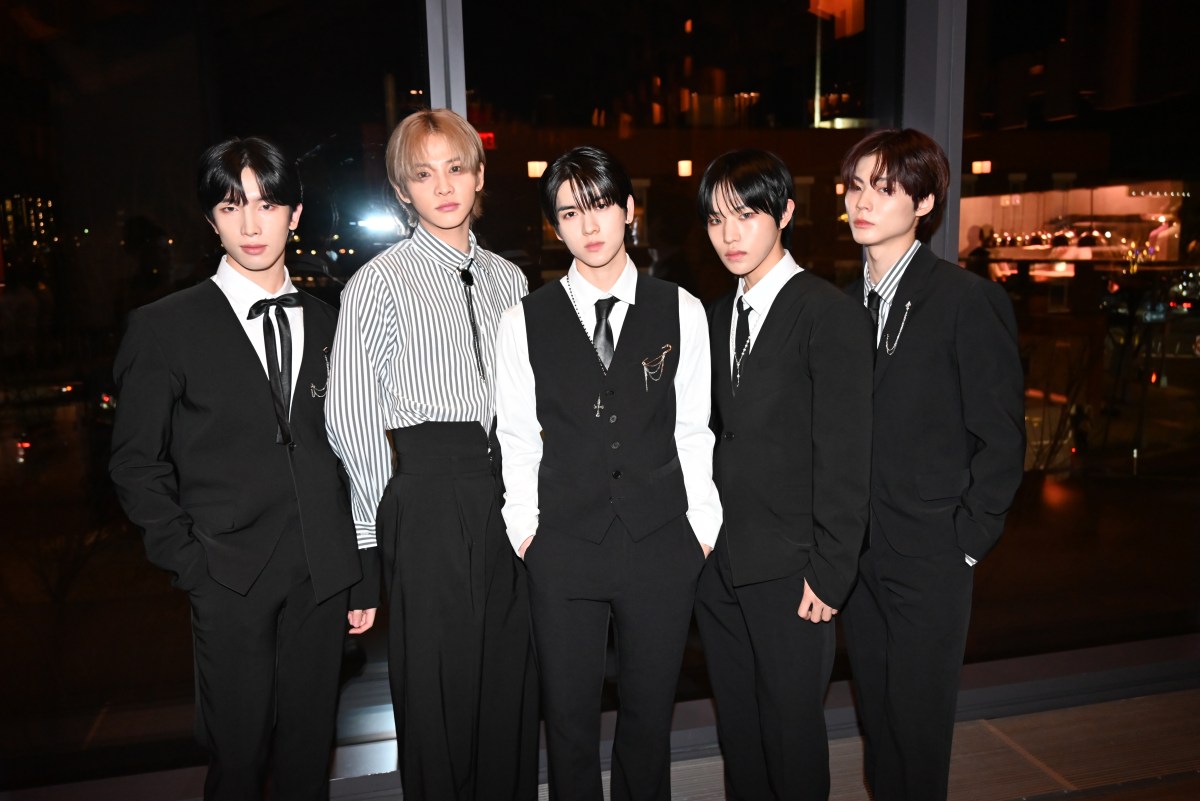NEW YORK (AP) — Smiling, fashion designer Thom Browne emerged from a New York courthouse Thursday victorious over sportswear giant Adidas in a grand battle over signature stripes.
Browne told The Associated Press that he hopes the preservation of his striped designs on luxury athletic clothing and accessories inspires others whose work is challenged by larger clothing producers.
“It was important to fight and tell my story,” Browne told The Associated Press after a Manhattan federal court jury sided with him. Adidas had claimed that the striped designs used by Thom Browne Inc. were too similar to its own three stripes.
“And I think it’s more important and bigger than me, because I think I was fighting for every designer that creates something and has a bigger company come after them later,” he said.
Adidas indicated in a statement that their fight might go on.
“We are disappointed with the verdict and will continue to vigilantly enforce our intellectual property, including filing any appropriate appeals,” Rich Efrus, an Adidas spokesperson, wrote in an email.
Browne, a highly creative designer known for his theatrical runway shows, began selling clothing in 2001 at a boutique in Manhattan’s West Village. He has since become hugely successful, especially after a 2018 deal with luxury brand Zegna. His company is now featured in over 300 locations worldwide, including Tokyo, London, Seoul, Hong Kong, Shanghai, Beijing and Milan.
Adidas sued Browne in June 2021, saying his “Four-Bar Signature” — along with other products featuring parallel stripes on activewear including T-shirts, sweatpants and hoodies — infringed on its own well-known trademark.
The two-week trial concluded when the eight-person jury returned its verdict in less than two hours. Browne’s courtroom supporters erupted in joy before U.S. District Judge Jed Rakoff scolded them for violating courtroom decorum. Supporters later spilled into the hallway, some celebrating with hugs and tears.
The dispute goes back 15 years. In 2007, Adidas complained that Browne was using a three-stripe design too similar to theirs on a jacket. Browne agreed to stop using it and shifted to a four-stripe design. For years, Adidas did not argue with that — but as Browne became more prominent after the 2018 sale, he began expanding further into activewear and the sportswear giant took notice.
Adidas argued in its lawsuit that Browne’s stripes could confuse customers. Browne, in turn, has argued that the two companies are not direct competitors and don’t serve the same market. A pair of women’s compression tights on Browne’s website costs $725, for example. A pair of Adidas leggings is well under $100 on that company’s site.
Jeff Trexler, a faculty member at the Fashion Law Institute at Fordham Law School, said the trademark landscape has become more nuanced in a shifting marketplace where companies expand regularly into new categories — in both content and price — and collaborate on special lines with others. More and more, he said, companies aren’t staying in the lanes they began in, whether it’s fashion or soda.
“It’s like in ‘Ghostbusters’ where you know if you cross the streams, everything will blow up,” Trexler said.
As long as Browne put the stripes “on a man’s sport coat and his narrow luxury goods, maybe the occasional pair of sweat pants,” Trexler said, there wasn’t a crossing of the streams. But as he expanded more into activewear, the streams crossed.
Browne himself testified during the trial, noting the importance of sports in his life and how it carried through to his career.
The former competitive swimmer said outside the courthouse that he grew up playing tennis and others in his large family enjoyed basketball, baseball and football.
“So it’s very authentic to who I am as a person,” he said. “It’s something that inspires me every day in regards to what I do.”
He said he counts many professional athletes among his friends and customers and considers them a “huge inspiration.”
Trexler noted that Browne’s lawyers had successfully convinced jurors that Browne was an underdog.
“In short, Thom Browne’s counsel got the jury to see this case as The People vs. The Corporation, and populism won,” he said after the verdict.
Browne said he hopes the courtroom fight was his last.
“I just want to design collections and I don’t want to ever be in a courtroom ever again,” he said.
























